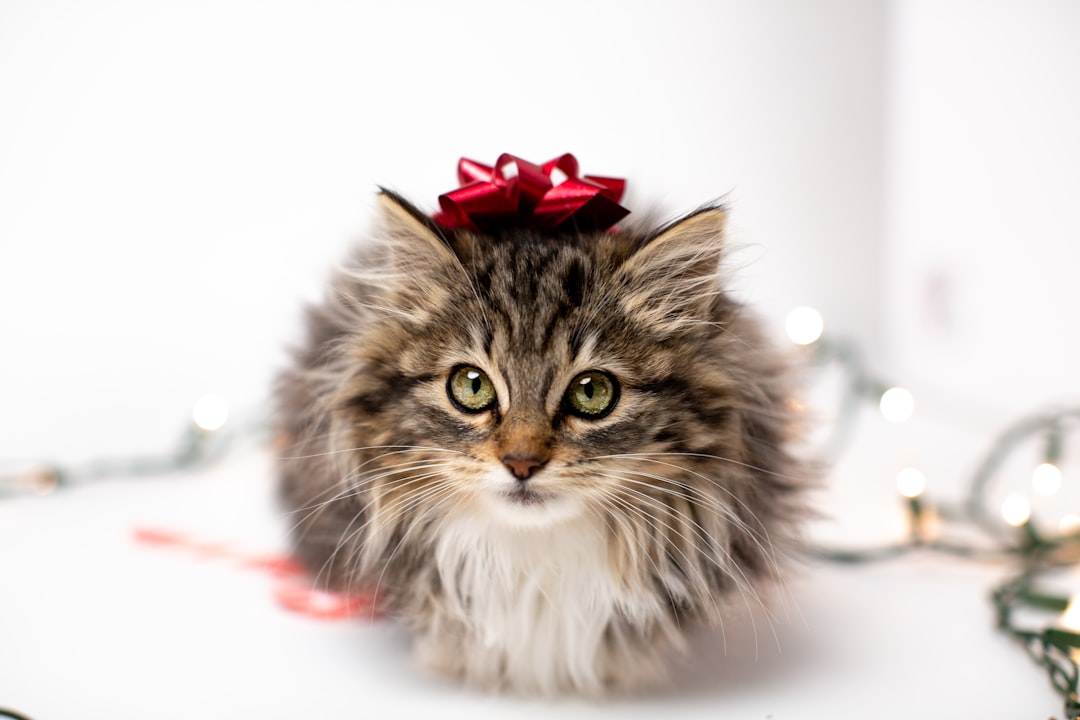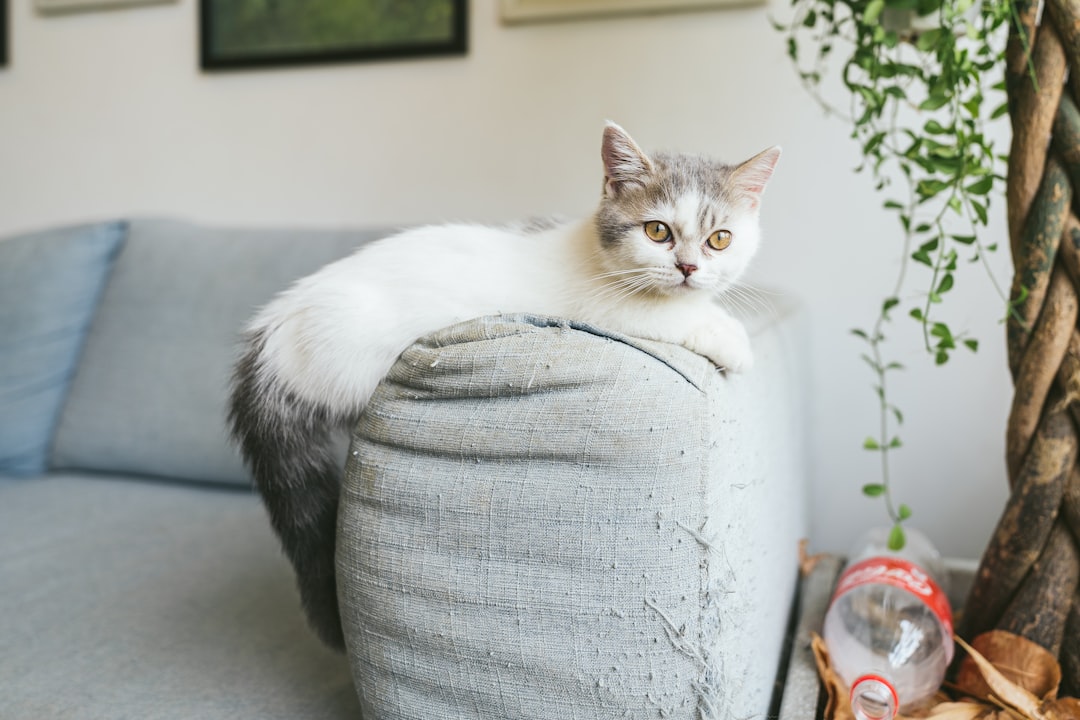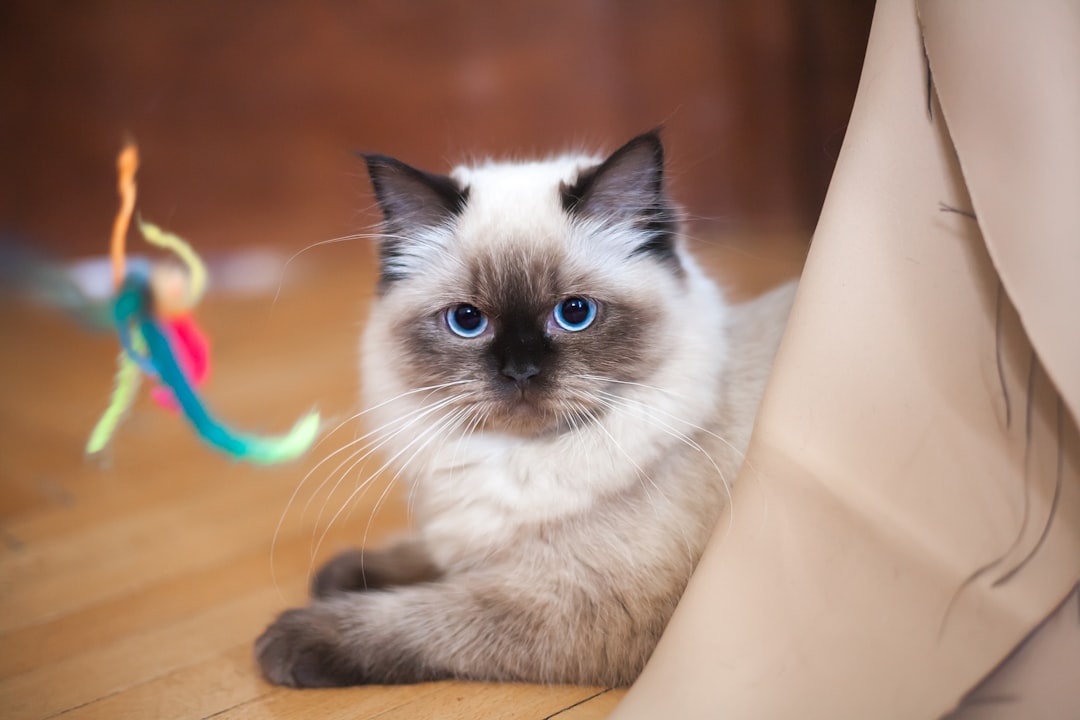When you hear your feline friend coughing, it’s natural to feel concerned. Understanding the reasons behind this behavior can significantly impact your cat’s health and wellbeing. Cats can cough for various reasons, ranging from minor irritations to more serious health issues, so knowing why is my cat coughing? is crucial for proactive pet care. In this article, we will explore common causes of cat coughing, identify potential respiratory problems, and provide guidance on what to do next. By gaining insight into your cat’s condition, you can take the appropriate steps to ensure their comfort and recovery, while also preventing future occurrences. Let’s dive into the world of feline coughing and discover how to support your furry companion.
Understanding Feline Coughing
Coughing in cats can be an alarming experience for any pet owner, prompting the crucial question, “Why is my cat coughing?” Understanding the underlying reasons for this behavior is essential to ensure your feline friend’s health and well-being.
What does it mean when a cat coughs?
Coughing is defined as a sudden expulsion of air from the lungs, often acting as a protective reflex. In cats, coughing can indicate a range of potential conditions, including:
- Respiratory infections: Viruses or bacteria can lead to inflammation and irritation in the airways.
- Allergies: Environmental triggers such as pollen or dust can cause allergic reactions.
- Asthma: This chronic condition causes difficulty in breathing and frequent coughing.
- Foreign objects: Sometimes, cats may cough to expel something lodged in their throat.
Recognizing the context and frequency of the cough is key to understanding its significance.
Common misconceptions about cats and coughing
There are several misconceptions surrounding feline coughing that can lead to unnecessary stress or confusion among cat owners:
- Coughing is normal: While some occasional throat clearing may be natural, persistent coughing is not normal and warrants attention.
- All cats cough: Many people assume that coughing is a typical cat behavior, but it is usually a sign that something is wrong.
- Only old cats cough: Coughing can occur in cats of any age, from kittens to seniors.
Understanding these points can help demystify the situation and empower you to seek appropriate care for your cat. If you’re ever concerned about your cat’s coughing, it’s important to consult a veterinarian to explore further.
Common Causes of Cat Coughing
Understanding the reasons behind your feline’s cough is vital for their health and comfort. Here are some of the most prevalent causes of cat coughing:
Respiratory infections and coughs
- Viruses and Bacteria: Cats can suffer from various respiratory infections, often caused by feline herpesvirus or Calicivirus.
- Pneumonia: In serious cases, your cat may develop pneumonia, leading to a persistent cough and additional symptoms such as fever and lethargy.
- Fungal Infections: Certain fungal infections, such as Blastomycosis, can also cause coughing in cats.
Allergies and environmental factors
- Dust and Pollen: Just like humans, cats can have allergic reactions to dust, pollen, or other allergens present in their environment, which can trigger coughing.
- Smoke and Strong Odors: Exposure to cigarette smoke, cleaning supplies, or strong fragrances can irritate a cat’s respiratory system, prompting coughs.
- Weather Changes: Seasonal changes may lead to fluctuations in allergens in the air, affecting your cat’s respiratory health.
By being aware of these common causes, you can better discern why is my cat coughing? This knowledge will help you take appropriate action to keep your feline friend healthy and happy.
Why Is My Cat Coughing? Possible Respiratory Issues
Coughing in cats can often signal underlying respiratory issues that require attention. Identifying these conditions early on can significantly improve your feline friend’s quality of life. Here are some common respiratory ailments that may cause your cat to cough:
Feline asthma explained
Feline asthma is a chronic inflammatory condition affecting the airways. It can lead to coughing in varying degrees of severity. Here are some key points to note:
- Causes: Allergens like pollen, dust, smoke, or even certain pet foods may trigger asthma in cats.
- Symptoms: Besides coughing, you may also notice wheezing, shortness of breath, or difficulty in breathing.
- Management: While there is no cure, corticosteroids or bronchodilators prescribed by a veterinarian can help manage symptoms effectively.
Bronchitis in cats: symptoms and treatment
Bronchitis is another significant respiratory issue that can cause coughing. It occurs due to inflammation of the bronchial tubes, which can be acute or chronic. Key details include:
- Symptoms: Look for persistent coughing, lethargy, and decreased appetite, which can indicate bronchitis.
- Causes: Exposure to irritants like smoke, chemicals, or respiratory infections can lead to bronchitis.
- Treatment options: Your veterinarian may recommend anti-inflammatory medications, bronchodilators, or antibiotics, depending on the cause.
If you find yourself wondering why is my cat coughing?, these respiratory conditions are worth investigating. Consult your veterinarian for a proper diagnosis and tailored treatment plan to ensure your cat’s well-being.
Identifying Coughing Triggers in Cats
Understanding what triggers your cat’s coughing is crucial for addressing the issue effectively. Various environmental factors can significantly influence your feline friend’s respiratory health. Let’s explore some common triggers that may be causing your cat’s cough.
Seasonal allergies and irritants
Many cats experience seasonal allergies, much like humans. Common irritants include:
- Pollen: Grasses, trees, and flowers can release pollen, which might provoke a coughing fit.
- Dust mites: These microscopic creatures thrive in homes and can lead to respiratory irritation in sensitive cats.
- Mold: Indoor or outdoor mold can be an overlooked trigger, especially in damp environments or during humid weather.
Being observant during specific seasons can help pinpoint whether your cat’s coughing is linked to allergies. If you notice a correlation, consider consulting a vet for appropriate allergy management.
The role of pollutants in your home
Your home environment plays a significant role in your cat’s respiratory health. Common pollutants include:
- Cigarette smoke: Even secondhand smoke can be harmful, leading to chronic cough.
- Chemical cleaners: Many cleaning products emit volatile organic compounds (VOCs) that may irritate your cat’s airways.
- Airborne particles: Pet dander, dust, and other allergens lurking around can exacerbate coughing.
To minimize exposure, maintain a clean and well-ventilated space. Consider using air purifiers to help reduce airborne irritants. By identifying and addressing these triggers, you’ll be taking essential steps toward answering the question “Why is my cat coughing?”
When to Be Concerned About Your Cat’s Cough
Coughing may seem like a harmless symptom, but it can signal underlying health concerns in your feline friend. Knowing when to seek veterinary assistance is crucial to ensuring your cat’s wellbeing.
Signs that require immediate vet care
Look out for the following alarming signs that warrant immediate veterinary attention:
- Difficulty Breathing: If your cat appears to struggle to breathe or is wheezing.
- Persistent Coughing: An ongoing cough that lasts more than a few days.
- Blood or Mucus in Cough: Presence of blood or unusual mucus when your cat coughs.
- Lethargy: If your cat shows significant decreases in energy or interest in activities.
- Loss of Appetite: Sudden aversion to food or water can indicate serious issues.
How to monitor your cat’s coughing behavior
Keeping track of your cat’s coughing patterns can provide valuable insights:
- Frequency and Duration: Note how often your cat coughs and how long each episode lasts.
- Time of Day: Determine if coughing occurs mainly during specific times, such as after eating or during play.
- Triggers and Environment: Identify any environmental factors or activities that seem to trigger the cough.
- Associated Symptoms: Watch for other symptoms such as sneezing, vomiting, or changes in behavior.
By observing these signs and patterns closely, you can better answer the question, “Why is my cat coughing?” and help your veterinarian diagnose any potential issues more effectively. Remember, the sooner you act, the better the chances for a successful outcome for your furry companion.
Home Remedies for Cat Coughing
If you’ve been wondering why is my cat coughing, there are several home remedies you can consider to provide comfort and relief. While it’s essential to consult with a veterinarian for persistent symptoms, here are some effective home remedies that might help alleviate your feline’s coughing.
Using Humidifiers and Air Purifiers
- Humidifiers can add moisture to the air, which may help soothe your cat’s irritated throat and airways. Simply place a humidifier in the room where your cat spends most of its time.
- Air purifiers reduce airborne irritants, such as dust and allergens. Ensure that the one you choose has a high-efficiency particulate air (HEPA) filter to effectively capture small particles that could cause coughing.
- Steam therapy can be beneficial if your cat is comfortable with it. Running a hot shower and letting your cat sit in the steamy bathroom for a few minutes might provide temporary relief.
Safe Over-the-Counter Options
- Cough suppressants specifically designed for cats can sometimes be beneficial. Only use products that your veterinarian has approved.
- Herbal remedies, such as honey (for cats over one year), can also soothe the throat. A small amount mixed in food may help calm a cough.
- Natural expectorants like thyme or eucalyptus can be added to your cat’s environment, but be cautious as some essential oils can be toxic to pets. Always check with your vet first before using any herbal solutions.
Implementing these remedies may assist in easing your cat’s cough. Nonetheless, monitoring your pet closely remains crucial, as underlying health issues may require professional veterinary care.
Veterinary Care for Persistent Coughing
When dealing with your cat’s persistent cough, it’s crucial to seek veterinary care. While some coughs are benign, a prolonged cough may indicate an underlying health issue that requires professional attention.
What to Expect During a Vet Visit
During your visit, expect the veterinarian to:
- Conduct a thorough examination: The vet will assess your cat’s overall health, looking at weight, ears, eyes, and temperature.
- Gather a detailed history: You will be asked questions about the duration of the cough, any other symptoms, and possible environmental factors.
- Discuss potential exposure: It’s important to mention if your cat has been around other animals or has traveled, as this could influence diagnosis.
These steps provide a solid foundation for determining the cause of your cat’s cough.
Common Diagnostic Tests for Coughing Cats
To pinpoint the issue behind your cat’s cough, the veterinarian may recommend several diagnostic tests, including:
- Radiographs (X-rays): To inspect the lungs and heart for abnormalities.
- Blood tests: These can reveal infections, allergies, or other systemic health issues.
- Bronchoscopy: A minimally invasive procedure to examine the airways directly and collect samples.
- Fecal examinations: Useful for clearing potential parasitic infections that may cause coughing.
These tests help the veterinarian understand the underlying issue, allowing for tailored treatment plans. If the question arises, “Why is my cat coughing?”, these evaluations will provide the insights needed to address the condition effectively.
How to Support Your Cat’s Recovery
Supporting your cat’s recovery from coughing involves a combination of creating a comfortable environment and addressing their nutritional needs. Here are essential strategies to aid in your feline friend’s recuperation.
Creating a soothing environment
A calm and reassuring atmosphere can significantly accelerate your cat’s healing process. Consider the following tips:
- Quiet Space: Designate a quiet area in your home where your cat can rest undisturbed. Reduce loud noises and activities to minimize stress.
- Comfortable Bedding: Provide soft, clean bedding to help your cat feel secure and cozy as they recuperate.
- Humidity Control: Using a humidifier can add moisture to the air, making it easier for your cat to breathe. Ensure they are not exposed to drafts or extreme temperatures.
- Gentle Interaction: Interact with your cat softly. Hand-petting or gentle brushing can provide comfort and strengthen your bond during this recovery phase.
Nutritional considerations
Nutrition plays a vital role in your cat’s recovery. Keep the following points in mind:
- Hydration: Ensure your cat has access to fresh water at all times. Proper hydration aids in maintaining respiratory health.
- Quality Diet: Feed them a premium-quality, balanced cat food tailored to their age and health needs. Nutrition boosts their immune system.
- Increased Appetite: If your cat shows a decreased appetite, consider warming their food slightly to enhance its aroma and appeal.
- Supplementary Support: Consult your veterinarian about dietary supplements or specialized diets that can help support their respiratory health and overall recovery.
By creating a soothing environment and focusing on proper nutrition, you can help your furry companion regain their health and vitality. If you are still pondering, why is my cat coughing?, these supportive measures may provide answers and encourage recovery.
Preventing Future Coughs in Cats
To ensure your feline friend remains healthy and cough-free, it’s crucial to adopt preventive measures. Here are some effective strategies to help you in preventing future coughs in cats:
Regular check-ups and vaccinations
- Routine veterinary visits: Schedule regular check-ups with your veterinarian. Annual exams are essential for catching potential health issues early.
- Vaccination updates: Keep your cat’s vaccinations up to date to protect against respiratory infections. Discuss with your vet about core vaccines, including those for feline calicivirus and feline rhinotracheitis.
- Parasite control: Implement a parasite control program. Fleas, ticks, and worms can lead to health complications, including respiratory problems.
Maintaining a clean and safe home environment
- Dust-free zone: Regularly clean and vacuum your home to minimize dust and allergens. Consider using air purifiers equipped with HEPA filters.
- No smoke: Keep your cat away from secondhand smoke, as it can irritate their lungs and lead to coughing.
- Identify allergens: Be mindful of common allergens, such as certain plants or cleaning products. Opt for cat-safe, non-toxic alternatives to reduce exposure.
- Physical activity: Provide your cat with ample playtime and exercise. A healthy, active cat is less susceptible to respiratory issues.
By taking these proactive steps, you can help safeguard your cat’s health and significantly reduce the likelihood of experiencing coughing episodes. If you ever wonder, “Why is my cat coughing?”, these preventive measures could provide insight into how to maintain their well-being.
Final Thoughts on Cat Coughing
Summarizing Key Takeaways
In summary, understanding why your cat might be coughing can significantly impact their overall health and well-being. If your feline friend is experiencing persistent coughing, it could be indicative of underlying health issues that warrant your attention. Here are some key points to remember:
- Monitor Your Cat: Regularly observe your cat for any changes in behavior, frequency of coughing, or other symptoms.
- Identify Triggers: Be aware of environmental triggers such as allergens, smoke, or changes in temperature that may exacerbate coughing.
- Consult Your Veterinarian: If your cat’s coughing persists, seeking professional advice is essential. Early diagnosis can lead to more effective treatment.
- Consider Lifestyle Changes: Implementing better air quality in your home, maintaining a healthy diet, and regular vet visits can help prevent future coughs.
Resources for Additional Information
For more insights into feline health, consider exploring the following resources:
- Veterinary Websites: Websites such as the American Association of Feline Practitioners (AAFP) offer a wealth of information about cat health and wellness.
- Pet Care Books: Books specifically about feline healthcare can provide in-depth knowledge on common illnesses, including respiratory issues.
- Online Forums: Pet owner communities often share experiences and advice that can be valuable for understanding your cat’s health concerns.
By staying informed and proactive, you can help ensure your cat remains happy and healthy, addressing issues like “Why is my cat coughing?” effectively.
Frequently Asked Questions
What are the common causes of coughing in cats?
Coughing in cats can be attributed to several common causes, including respiratory infections, allergies, asthma, and foreign objects lodged in the throat. Other potential culprits might be parasites like heartworms or even underlying heart issues. It’s crucial to observe other symptoms such as lethargy, loss of appetite, or wheezing, as these can help narrow down the cause and determine the urgency of seeking veterinary care.
When should I take my cat to the vet if it is coughing?
You should take your cat to the vet if you notice persistent coughing that lasts more than a couple of days, or if it is accompanied by other concerning symptoms like difficulty breathing, lethargy, extreme changes in appetite, or if there is a noticeable odor to the cough. Even mild coughing combined with other symptoms warrants a professional evaluation to rule out serious issues and ensure your cat receives proper care.
Can allergies cause coughing in cats?
Yes, allergies can indeed lead to coughing in cats. Just like people, cats can be allergic to various substances including pollen, dust mites, and certain foods. When exposed to allergens, a cat may exhibit respiratory symptoms like coughing, sneezing, or even difficulty breathing. Identifying and eliminating exposure to the allergen, along with possible treatments advised by a veterinarian, can help alleviate these symptoms.
Is coughing in cats always a serious condition?
Not always, but coughing in cats can be a symptom of both minor and serious conditions. Factors like the duration of coughing, the presence of other symptoms, and the overall health of the cat play a role in determining the severity. While occasional light coughing could be harmless, consistent coughing that alters the cat’s behavior or health should be treated seriously and assessed by a veterinarian to rule out any underlying issues.
What should I do if my cat is coughing?
If your cat is coughing, it’s best to observe its behavior and health closely. Monitor for any additional symptoms like difficulty breathing or changes in appetite. Keep allergens in mind and try to minimize exposure. If the coughing persists for more than a day or comes with other concerning symptoms, schedule an appointment with your veterinarian for a thorough evaluation and appropriate treatment.



